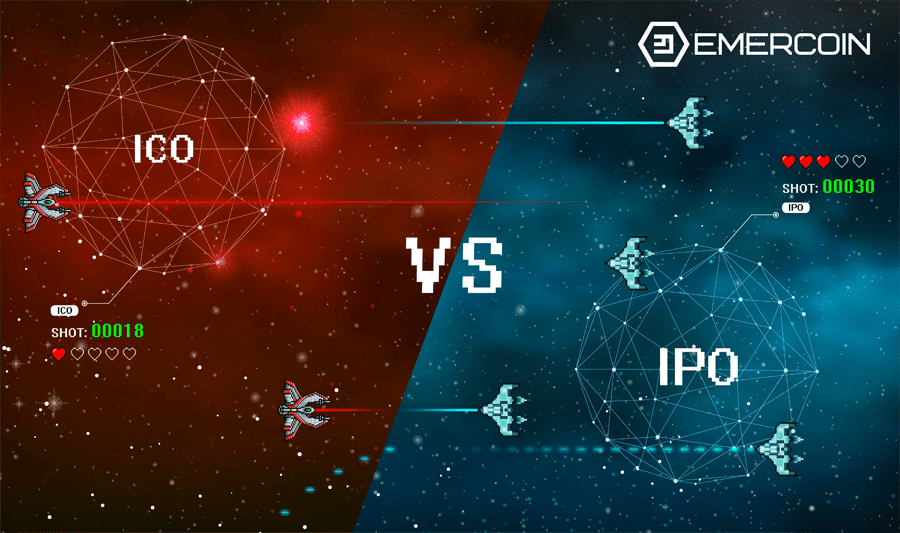ICOs, or initial coin offerings, seem to have replaced the IPOs, the initial public offerings, in hype and attention. With the cryptocurrency market capitalization currently going through $200 billion, it is interesting to note the differences between ICOs and IPOs.
An ICO, or an initial coin offering, is a sort of a crowdfunding project, with the creation and sale of a digital coin or the so-called tokens that are used to fund a project/idea/startup and many more.
An IPO, on the other hand, is the public sale of shares of any company for the very first time. Again, the goal is to collect funds to grow the business.
There are several major differences between the ICO and IPO process, except their different nature. ICOs do not “enjoy” regulatory oversight, which is one of the biggest issues raised against the process. IPOs, on the other hand, are heavily regulated. The track record of IPOs is strong, while the track record for ICOs is rather weak. For now, since the ICO market is relatively new, it is normal for the credibility to be weaker than IPOs.
One of the biggest differences between the two is the access they provide. IPOs are very exclusive, while ICOs are literally open for everyone to invest and get a “piece of the pie”. The decentralization and democratization of the ICO process is probably the biggest plus regular people see and hence, the popularity of ICOs. Now, one does not need to have a broker or go to a financial intermediary, but rather sit in front of a computer and just check the latest ICO offerings.
As of current, around $2.7 billion have been raised through ICOs. That number undoubtedly raises a question whether ICO’s are the new IPOs.
One reason why the ICOs are becoming so popular is the current market capitalization of digital currencies. The $200 billion market is only gaining momentum, especially now, as Bitcoin hits new record all-time highs almost every week.
Another reason is the power of blockchain. Blockchain is now used in real estate, agriculture, healthcare, food processing, medicine and many more industries. The technology community is going “a 100 miles an hour” to constantly disrupt every process or product that can be improved. One such example is the use of blockchain in agriculture in Russia, where the dairy production is increased using blockchain.
The final and most vivid reason why ICOs are gaining speed is the tremendous return they provide for early investors. According to Forbes and ICOstats.com here are some of the top ICO performers on the market:
Ethereum: 84,720% ROI since ICO
Stratis: 54,038% ROI since ICO
Augur: 2,720% ROI since ICO
Cooper Maruyama, the founder of ICOstats.com, said in an interview:
“I think there’s sort of a snowball effect kicked off by the success of Bitcoin and Ether. I think people see this all under the umbrella of “crypto” and want to be in on the next thing that will bring large returns. So they throw ETH/BTC at new tokens – which ideologically falls under that same umbrella of “crypto” – with the expectation of the same returns. Whether that will be the case is yet to be seen, but according to the data, buying more ETH on the same day of each ICO has seen better returns over time.“
So, there may be other factors why ICOs are currently so popular and tech communities and even established companies, like Cargill and IBM, are going out on a limb with blockchain, one thing is sure: ICOs are here to stay.
